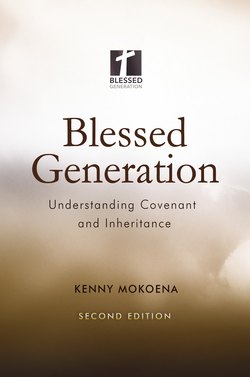Читать книгу Blessed Generation (Second Edition): Understanding Covenant and Inheritance - Kenny Mokoena - Страница 9
На сайте Литреса книга снята с продажи.
We Respond To God’s Blessing
ОглавлениеOne thing that stands out for me in what Jacob said to God when he made the vow to tithe is the fact that he did not put a condition on himself but he put a condition on God. In the first part of his statement from verse 20 to verse 21, he was not even talking to God but to himself. It even looks more like he was thinking than talking. It was only in verse 22 that he spoke directly to God when he said, “… and of all that You give me I will surely give a tenth to You.” In verse 22 Jacob tells God that he will only tithe out of what God would give him. Jacob challenged God to perform and made his tithe to be a response. This is where Jacob got it right. He did not try to manipulate the blessing by his action, his vow was to respond to what God was going to do. Look at the last part of verse 22 “…and of all that You give me I will surely give a tenth to You.”
Dear reader, let God be first in your life. To tithe and then expect God to do something for you is equal to placing yourself before God and at a level higher than Him. When we try to perform for God, we reject His covenant of grace and make the cross of Christ to be of no effect in our lives.
There is nothing that God requires from us except worship, that’s why you cannot find a scripture in the New Testament where God instructs us to tithe. God wants the tithe to originate from the heart and not from the law. Tithing is not worship if it is based on obedience to a law. Many teachings in our Churches today focus on tithing as an act of obedience and as a pre-requisite for the blessing. This is the reason why our people are not consistent in tithing. They tithe for two months and then take a break for three months. When things go bad then they start tithing again thinking that the bad things are happening because they did not tithe. They see bad things as evidence of the curse in their lives. If you are born-again, you are redeemed from the curse of disobedience (Galatians 3:13).
There is more to the tithe than tithing to avoid a curse. Jacob’s vow to tithe was not a vow to obey because God never told him to tithe. It was a vow to worship because God promised to be generous to him. An alter in the New Testament is not a place of sacrifice, but a place of worship because the ultimate sacrifice, Jesus Christ, has already been laid on it. If you tithe, do so from a willing heart and from a heart of gratitude. You must only tithe because you see and appreciate the grace of God upon your life, that’s worship. Those who understand biblical covenant relate with God this way.
When you see God as He depicts Himself in Genesis 28:13-15, there will be an urge for you to worship Him. Material things, when offered willingly to God, are received as worship. Your money is a very important symbol of worship to God, not because God wants your money but because it represents your heart (Matthew 6:21). In Matthew 15:8 Jesus said, “These people draw near to Me with their mouth, and honor Me with their lips, but their heart is far from Me.” When Abraham offered his son Isaac to God, he was offering his heart and God received the offering as worship. Tithing transcends mere lip service as worship.
